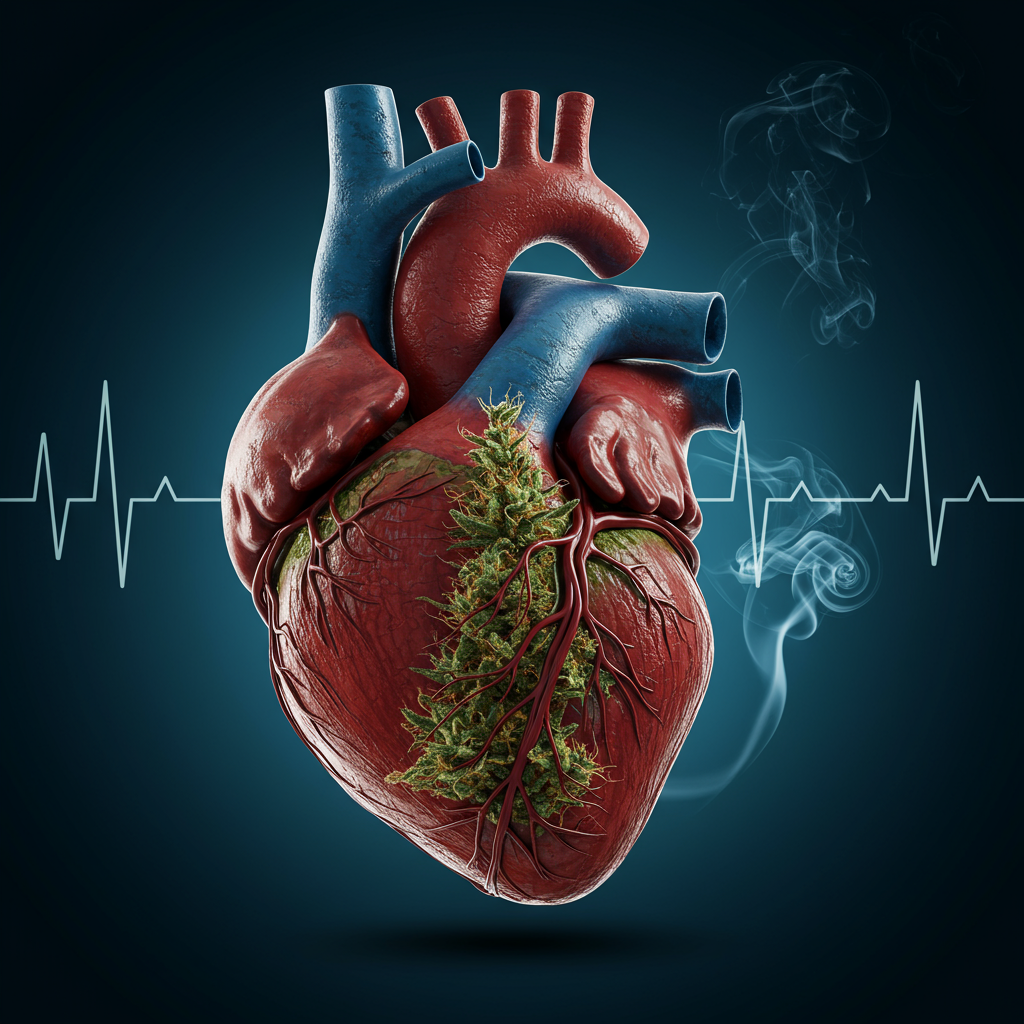Major Study Links Marijuana Use to Significant Rise in Cardiovascular Risks
Amidst the growing acceptance and use of marijuana across the United States and globally, new research is shedding light on the potential magnitude of health risks, particularly concerning the heart. A major meta-analysis, published in the journal Heart, provides a comprehensive look at recent studies, revealing a striking association between cannabis use and increased risk of death from cardiovascular disease, heart attacks, and strokes.
The study, which analyzed data from 24 previously published research papers involving approximately 200 million participants between 2016 and 2023, found concerning links:
Cannabis use was associated with a doubled risk of dying from cardiovascular disease.
Users had a 29% higher risk for acute coronary syndrome, a group of conditions including heart attack.
There was a 20% higher risk for stroke.
The lead author, Dr. Emilie Jouanjus, a clinical pharmacologist at the University of Toulouse in France, noted that while these findings might surprise some, they align with previous research into the adverse health effects of marijuana.
Understanding the Risk Amidst Rising Use
The findings emerge at a time when cannabis use is increasingly prevalent. Recreational marijuana is now legal in 24 states, and the U.S. Drug Enforcement Administration is considering reclassifying the drug. According to a Carnegie Mellon University report from last year, daily marijuana users now outnumber daily drinkers for the first time, a shift significantly influenced by young people.
This rise in usage has coincided with a decline in the public’s perception of marijuana’s risks, according to health experts like Dr. Lynn Silver and Stanton Glantz, who authored an editorial accompanying the study. They argue that the study’s results underscore potential negative health effects that are being overlooked.
“Our results provide a fully comprehensive report of the recent situation towards the cardiovascular health of cannabis users,” the study authors wrote, though they acknowledged limitations, including potentially imprecise dosage measurements in the analyzed data.
Public Health Implications: Treat Like Tobacco?
Given the significant findings, Silver and Glantz advocate for cannabis to be treated similarly to tobacco: not criminalized, but actively discouraged. This public health approach could involve measures like effective product warnings, educational campaigns, and efforts to protect bystanders from secondhand exposure, especially from inhaled forms of cannabis.
Dr. Ibrahim Kamel, a study author from Boston University (involved in a separate but related study finding increased heart attack risk in younger users), suggested that asking about cannabis use should become a standard part of assessing a patient’s overall cardiovascular risk, similar to screening for cigarette smoking.
How Might Cannabis Affect the Heart? Potential Mechanisms
Researchers are still exploring the exact ways cannabis, particularly its main psychoactive compound THC, impacts the cardiovascular system. However, emerging evidence suggests several potential mechanisms:
Increased Strain: THC can elevate heart rate and blood pressure, placing extra stress on the heart.
Blood Flow Issues: Some studies suggest THC could cause blood vessel constriction or dysfunction (endothelial dysfunction), potentially limiting blood flow and increasing the risk of clots or stroke.
Inflammation & Plaque: Cannabis, similar to tobacco smoke, may contribute to inflammation and the buildup of plaque in artery walls, increasing the risk of heart attack, stroke, and peripheral artery disease.
Inhaled Smoke: Inhaling cannabis smoke exposes users to fine particulate matter, much like tobacco smoke, which is a known contributor to cardiovascular problems. A retired tobacco control expert noted the chemical similarity between marijuana and tobacco smoke, with THC essentially replacing nicotine.
Higher THC Concentration: Modern cannabis products often have significantly higher concentrations of THC compared to products from past decades, which may contribute to observed increased risks.
While smoking is clearly linked to cardiovascular risk due to inhalation, recent research mentioned by Dr. Matt Springer, a UCSF cardiovascular researcher, suggests even users of edibles show physiological changes associated with heart disease risk, indicating the risk may not be limited to smoked products.
Specific Risks Highlighted by Other Research:
Further studies reinforce these concerns. One retrospective study focusing on individuals under 50 without prior heart conditions found that cannabis users were more than six times as likely to experience a heart attack compared to non-users over an average of three years. This study also noted a four times higher risk of ischemic stroke and a three times higher risk of combined cardiovascular death, heart attack, or stroke in this younger, otherwise healthy group. Another analysis suggested that the heart attack risk might peak about one hour after cannabis use.
Study Limitations and the Need for More Research
Despite the compelling findings, the authors and other experts acknowledge limitations in the existing data. These include difficulties in precisely measuring cannabis dosage, frequency, duration, and consumption methods across different studies. It’s also challenging to fully account for other potential confounding factors, such as the use of tobacco or other substances.
Crucially, more research is needed to determine:
Whether cardiovascular risks are limited primarily to inhaled products or extend to other forms of exposure.
The threshold dosage or frequency of use that increases risk.
If occasional use is significantly safer than daily or heavy use.
The specific impact on vulnerable populations, such as older adults or individuals with pre-existing heart conditions.
While the exact mechanisms require further investigation and limitations exist in current research, experts involved emphasize that the evidence points to a clear increase in cardiovascular risk associated with cannabis use. This potential health impact, particularly the doubled risk of death from heart disease found in this major review, should be a significant consideration for individuals and healthcare providers alike. As Dr. Springer commented, these reports indicate cannabis is “not necessarily harmless.”



